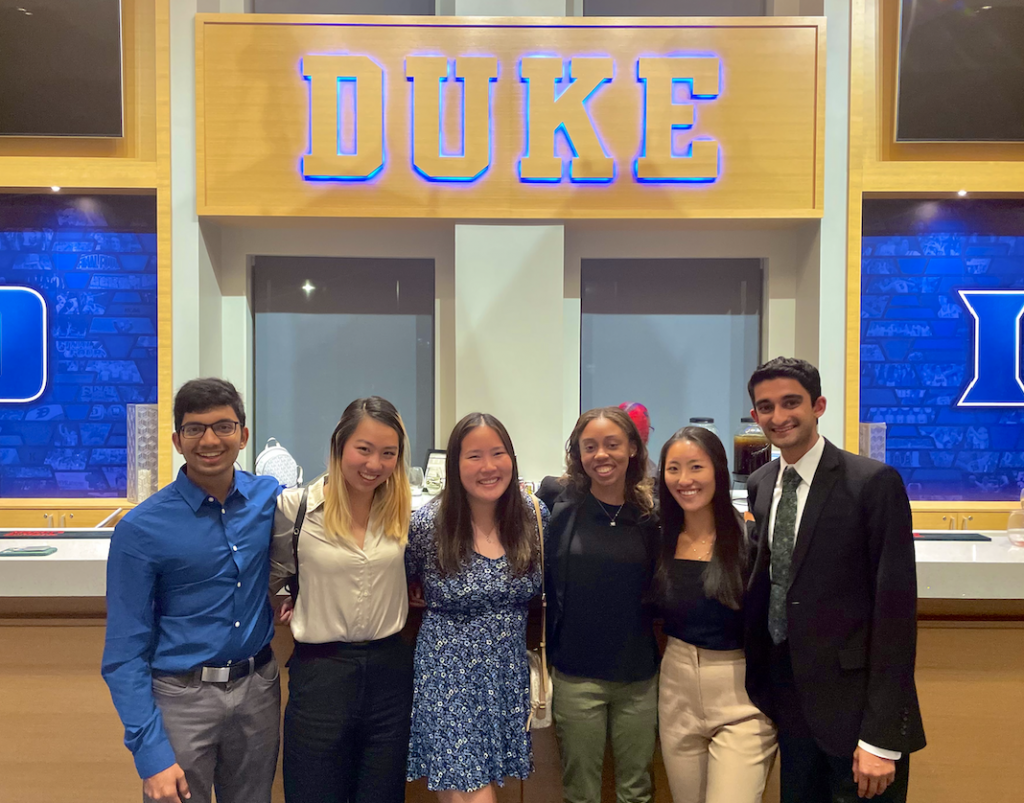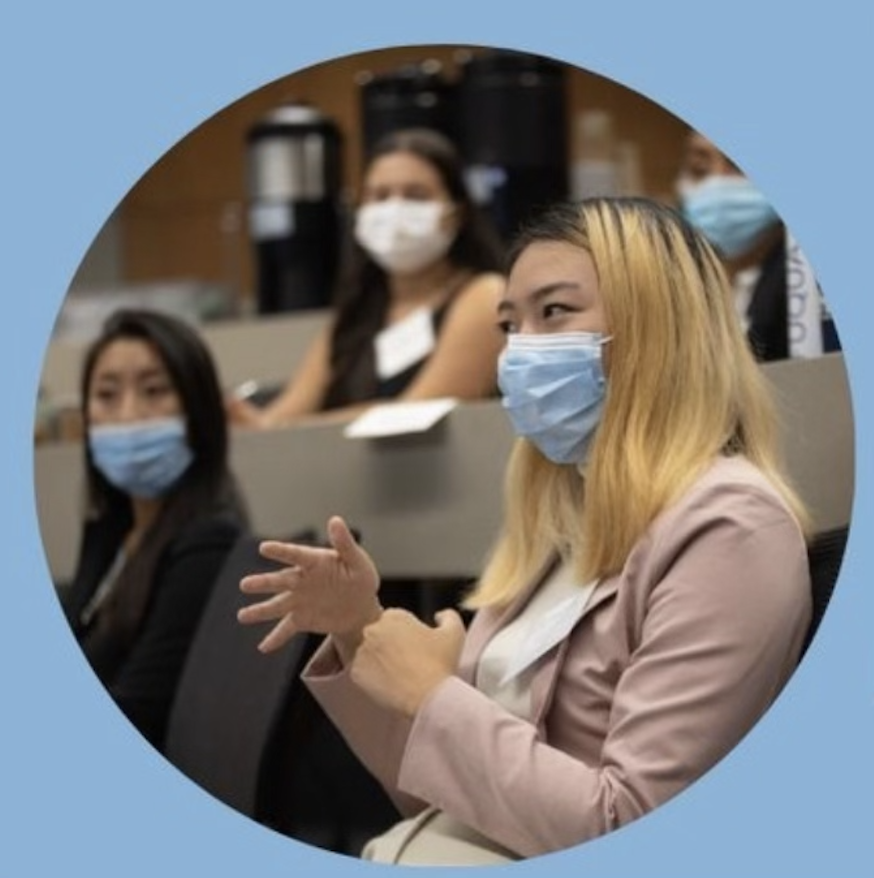“After COVID-19,” senior Cynthia Dong (T’23) remarks, “so much of what was wrong with the medical system became visible.”

This realization sparked an interest in how health policy could be used to shape health outcomes. Dong, who is pursuing a self-designed Program II major in Health Disparities: Causes and Policy Solutions, is a Margolis Scholar in Health Policy and Management. Her main research focus is telehealth and inequitable access to healthcare. Her team looks at patient experiences with telehealth, and where user experience can be improved. In fact, she’s now doing her thesis as an offshoot of this work, researching how telehealth can be used to increase access to healthcare for postpartum depression.

In addition to her health policy work, however, Dong also works as a research assistant in the neurobiology lab of Dr. Anne West, and her particular focus is on the transcription mechanism of the protein BDNF, or brain-derived neurotrophic factor.
While lab research can be clearly visualized by most people (think pipettes, rows of benches littered with bottles and plastic tubes, blue rubber gloves everywhere), health policy research is perhaps a little more abstract. When asked what the process of research through Margolis is like, Dong says that “it’s not team-based or individual – it’s a lot of both.” This looks like individual research on specific topics, talking to different stakeholder groups and people with certain expertise, and then convening for weekly team meetings.

For Dong, research has been invaluable in teaching her to apply knowledge to something tangible. Doing that, you’re often “forced to understand that not everything is in my control.” But on the flip side, research can also be frustrating for her because so much of it is uncertain. “Will your paper get published? Is what you’re doing relevant to the research community? Will people invest in you?”
In that vein, research has humbled her a lot. “What it means to try to solve a societal problem is that it’s not always easy, you have to break it down into chunks, and even those chunks can be hard to solve.”
After graduation, Dong plans on taking a couple of gap years to be with family and scribe before ultimately pursuing an MD-MPH. Because research can be such a long, arduous process, she says that “It took me a long time to realize that the work we do matters.” In the future, though, she anticipates that her research through Margolis will directly inform her MPH studies, and that “with the skills I’ve learned, I can help create good policy that can address the issues at hand.”

